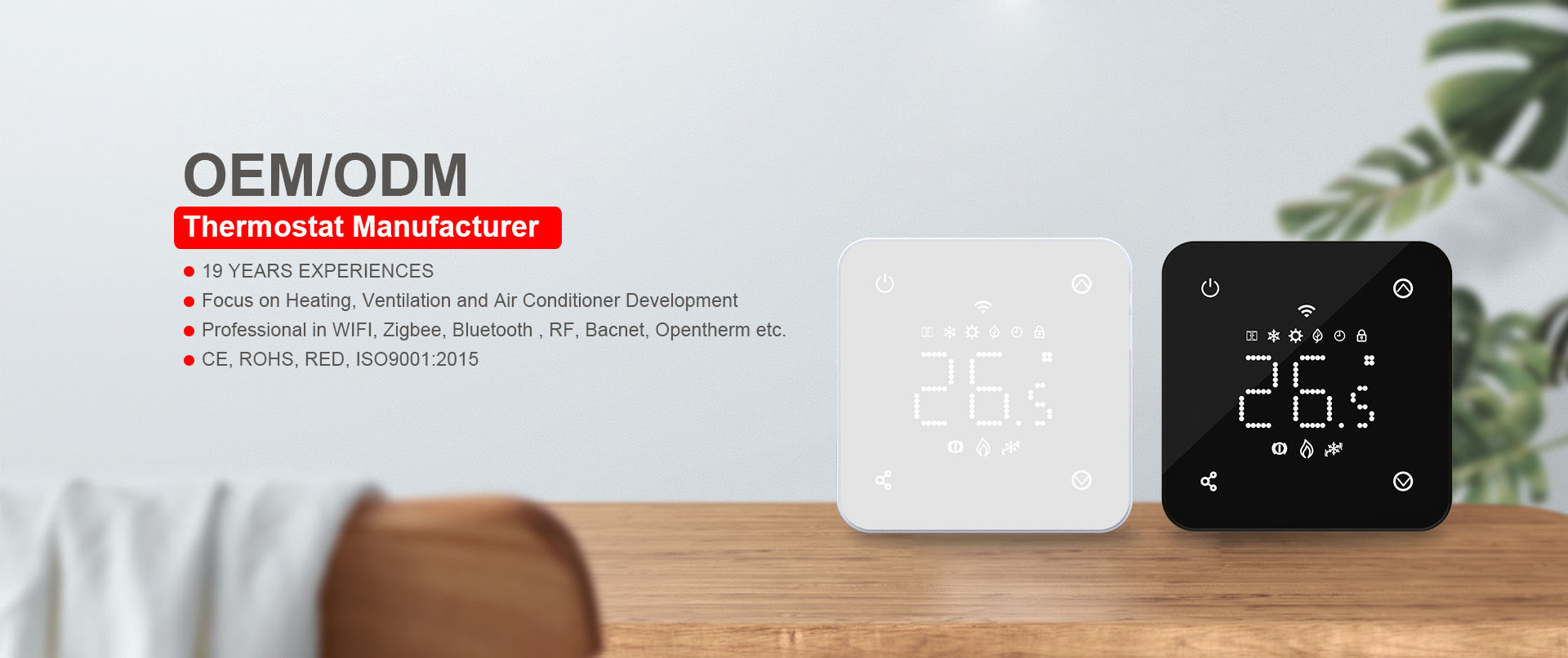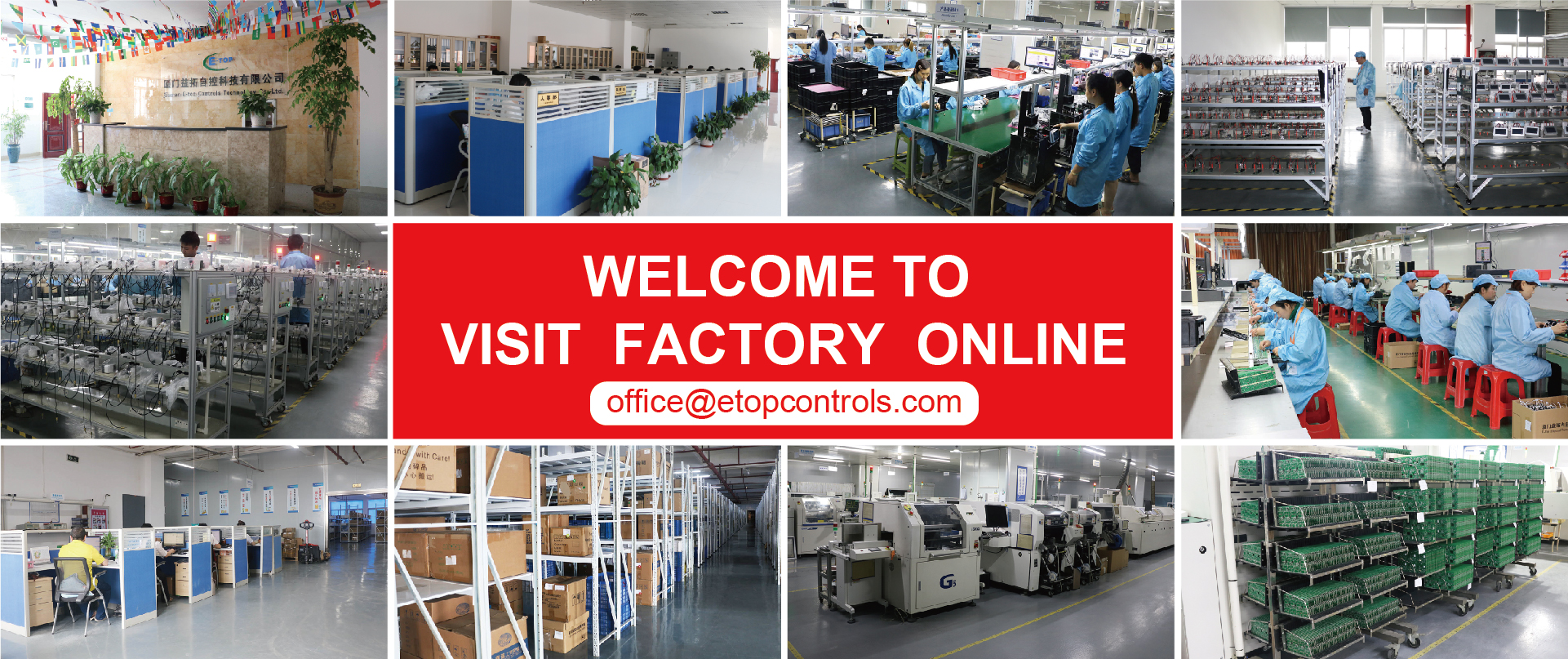SMT Workshop
SMT is very popular process for electronic products. Its high efficiency and high precision can help our devices to be more accurate and reliable;For now, we have 3Nos of SMT machine, brand Panasonic and Juki, this also make sure 1.5million pieces/year capacity; Our room thermostat workshop is upstairs from us, which greatly reduces the vibration of the printed circuit board during transportation, and protects the stability of all components to the greatest extent; AOI inspection is particularly important as a checkpoint of SMT, it can help us improve the yield rate of circuit boards to 99.8%.

DIP Workshop
For a room thermostat, DIP process is necessary for some bigger components that unable to be done by SMT, like relay, large capacitance, and terminals etc.;People plug in the components to correct position, then through wave soldering machines, that helps all the components fix to the PCB; After cool down, remember to cut down the too long pins (foot of components) according to safety requirements; Then 100% visual checking and function test on fixture before you can put them neatly on the PCBA rack, never stack the boards on top of each other, friction can cause damage between components.

Injection Workshop
We have 5 Nos Injection machines to meet the company's production requirements.Before setup injection workshop, we received complaints such as thermostat hook broken, black dots, burrs, deformation. Since the establishment of our own injection molding workshop, the quality of our plastic parts has been greatly improved, mainly due to:
a. The procurement of plastic raw materials well controlled and monitored from ourselves. We import plastic grains from Taiwan. All plastic cases are PC+ABS,UL94-5 fire resistance
b. The process can be effectively controlled, 100% use original raw materials without secondary materials.
c. Thermostat tooling/mold can be effectively maintained.

Assamble Workshop
We have 2 assembly workshops and 10 assembly lines to meet the daily production capacity of 5000pcs. On production lines, we strictly require employees:
a. Wear anti-static clothing and anti-static wristbands
b. Before assembly, the first piece of the product is checked by PQC to ensure product accuracy
c. Operate according to the work instructions above production line
d. Distinction mark on defective product and good product
e. Take daily maintenance records

Products Aging
Aging is a mandatory process after the production is finished and before packaging. All the E-Top thermostats are mandatory being aged for 24 or 48 hours (depending on the products) before they're finally packed. The aging facilities include AC or DC source according to the actual products specification. Thermostat different voltages supplies include 12V/24V/110V/230V.
The aging process includes:
-On/off aging for 2hours (repeat power off and on thermostat)
-Highest standard voltage aging for 2 hours (265Vac)
-Standby aging for 20 hours (mostly are visual inspection, screen display defect, sensor discrepancy)
The whole aging system is designed by E-Top, it uses smart control and display system which is able to record the actual aging time, on/off time, voltage & current and more electronic details for the quality control process.
Currently, E-Top has two aging shelves which enable maximum 2000PCS of thermostats being aged simultaneously. It's a strong safeguard to guarantee the quality before entering the market.

Packing
Packaging is the last step before shipping however playing an important role for the product performance. The products are needed to do the visual inspection before they're put into the box, along with the customer labels which are needed careful inspected for serial, print, QR code etc.. The most frequent package way is sticker-box-craft paper carton (normally are 5 layers)-bandage-wood pellet(based on request).We have used the strongest material for each step in order to reduce to the minimum lose due to the oversea transportation.





